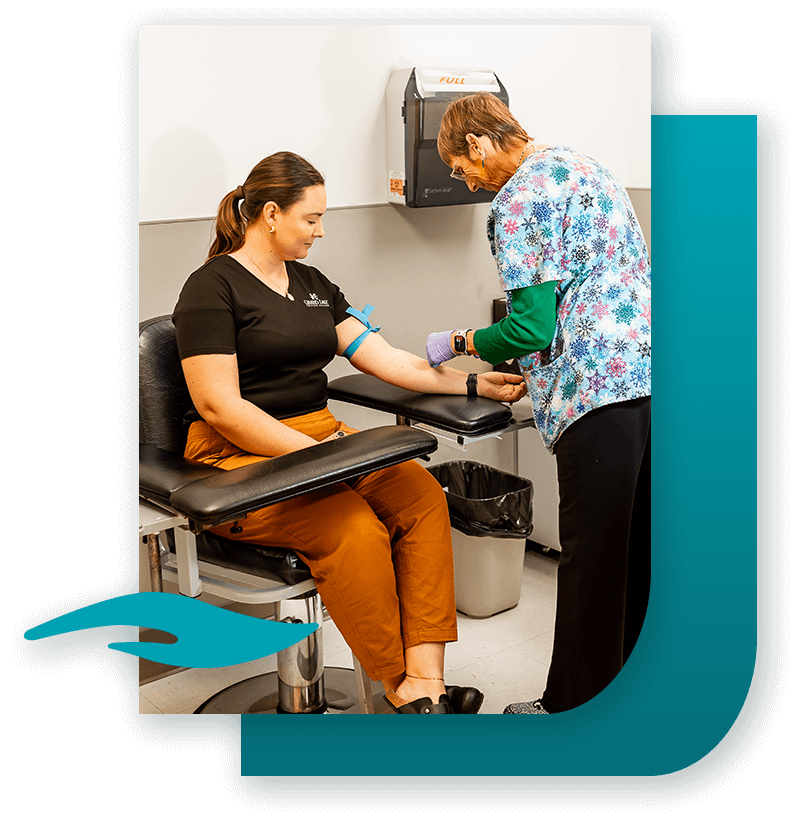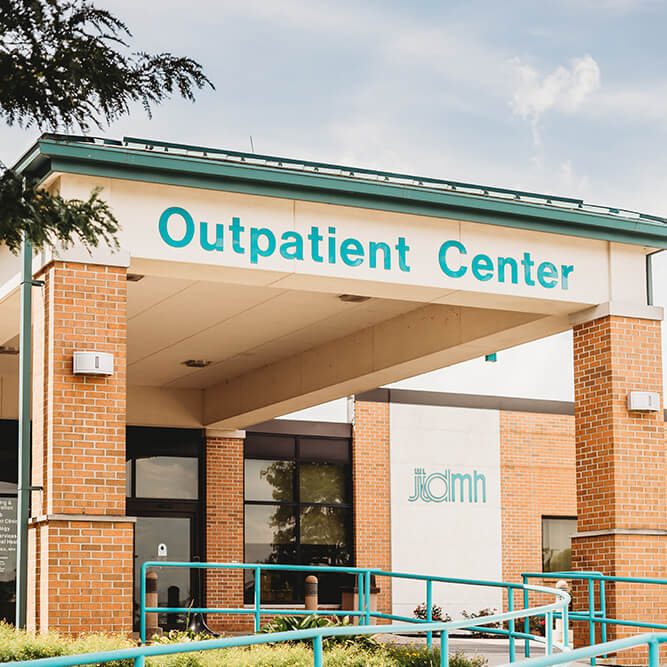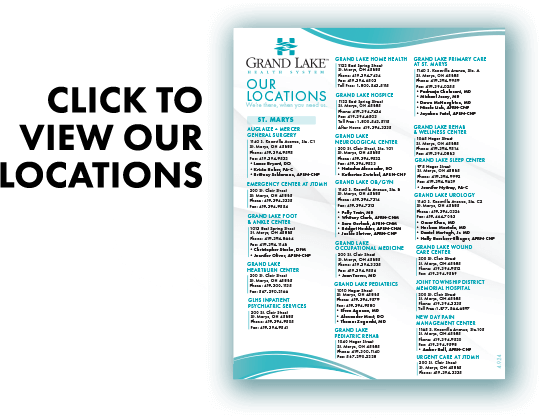
Comprehensive
Laboratory Services 24/7
The Laboratory at Grand Lake Health System provides a wide range of services for inpatients, outpatients, and emergency patients of all ages, operating 24/7. Tests are conducted using advanced instrumentation that is routinely updated. The Medical Director holds certification from the American Board of Pathologists and is available on-call during off hours, weekends, and holidays when not present on-site. Services include chemistry, hematology, transfusion services, microbiology, urinalysis, histology, cytology, and specimen collection.
Five Convenient
Lab Locations


Grand Lake Health System – Outpatient Lab
200 St. Clair Street
St. Marys, OH 45885
Phone: 419-394-3387
Monday-Friday: 6:00 AM – 6:00 PM
Saturday: 6:00 AM – 12:00 PM


Grand Lake Medical Office Building
1140 S. Knoxville Avenue, Ste. D
St. Marys, OH 45885
Monday-Thursday: 7:30 AM – 4:00 PM
Friday: 7:30 AM – 2:30 PM


Celina Medical Center
801 Pro Drive
Celina, OH 45822
Phone: 419-586-6489
Monday-Thursday: 7:00 AM – 4:30


Miami & Erie Medical Center – Diagnostic Center
04463 State Route 66
Minster, OH 45865
Phone: 419-628-3821
Monday-Thursday: 7:00 AM – 4:30 PM
Friday: 7:00 AM – 2:30 PM
Closed daily from 12:00 – 1:00 PM for lunch.


Wapakoneta Medical Center
812 Redskin Trail
Wapakoneta, OH 45895
Phone: 419-738-4445
Monday-Tuesday: 8:30 AM – 3:00 PM
Wednesday: CLOSED
Thursday: 8:30 AM – 3:00 PM
Friday: 8:30 – 11:00 AM
Patient-Requested Tests
The laboratory offers a selection of specific tests that patients can order themselves called Direct Access Testing. These tests are designed for general health screenings and come at a significant discount but need to be paid for before the blood draw (options include cash, check, or credit card). You can either print a copy of the order form or obtain one at the Outpatient Registration desk in the hospital. Test results will be provided solely to you, and it is your responsibility to follow up with your physician.
For more information about the Grand Lake Health System Direct Access Testing program, please contact Tom Geis, Laboratory Manager, at 419-394-3387, Ext. 3513 or tgeis@jtdmh.org.

Wellness Test Offered
Comprehensive Health Panel
Includes 14 general chemistry tests: Glucose, Sodium, Potassium, Chloride, Carbon Dioxide, Urea Nitrogen, Creatinine, Calcium, Albumin, Total Protein, AST, ALT, Alkaline Phosphatase, and Total Bilirubin. These assess liver and kidney function, electrolyte balance, and blood sugar levels. An 8-hour fasting period is recommended.
Basic Health Panel
Includes 8 general chemistry tests: Glucose, Sodium, Potassium, Chloride, Carbon Dioxide, Urea Nitrogen, Creatinine, and Calcium. These evaluate kidney function, electrolyte balance, and blood sugar levels. An 8-hour fasting period is recommended.
Liver Function Panel
Includes 7 general chemistry tests: Albumin, Total Protein, AST, ALT, Alkaline Phosphatase, Direct Bilirubin, and Total Bilirubin.
Kidney Function Panel
Includes 10 general chemistry tests: Glucose, Sodium, Potassium, Chloride, Carbon Dioxide, Urea Nitrogen, Creatinine, Albumin, Phosphorus, and Calcium. An 8-hour fasting period is recommended.
Iron Profile
Includes Total Serum Iron, Unsaturated Iron Binding Capacity (UIBC), Total Iron Binding Capacity, and Percent Iron Saturation, measuring the iron level in your blood’s liquid component.
Thyroid Function Panel
Includes Ultra-sensitive Thyroid-Stimulating Hormone (TSH) and Free Thyroxine (Free T4).
Diabetes Assessment
The Glucose test measures blood sugar at the moment of collection; an 8-hour fasting period is recommended. The Hemoglobin A1c test evaluates average blood glucose levels over the past few months; fasting is not required.
Lipid Profile
Includes Total Cholesterol, Triglycerides, HDL, LDL, VLDL, and a Cardiac Risk calculation. These indicators help assess the likelihood of heart attacks or strokes due to blood vessel blockages (arterial hardening). A 12-hour fasting period is recommended.
Total Cholesterol
No fasting is required.
High-Sensitivity C-Reactive Protein
HS-CRP is primarily used to help predict an individual’s risk of cardiovascular disease.
Prostate-Specific Antigen (PSA)
Elevated levels may indicate infection, prostate enlargement, or cancer in men.
Complete Blood Count
Includes Hemoglobin, Hematocrit, Red Blood Cell (RBC) count, White Blood Cell (WBC) count, WBC differential count, and Platelet count.
Potassium
Essential for heart function, potassium is part of routine evaluations, particularly for those on diuretics or heart medications, and for assessing high blood pressure and kidney disease. It is also used to monitor patients undergoing dialysis, diuretic therapy, or intravenous treatments.
Pregnancy Test
Accurate in detecting early pregnancy.
Testosterone
One in four men over 75 may have low testosterone and could benefit from supplementation. Low levels may indicate various health issues, while high levels may suggest testicular tumors or anabolic steroid use.

